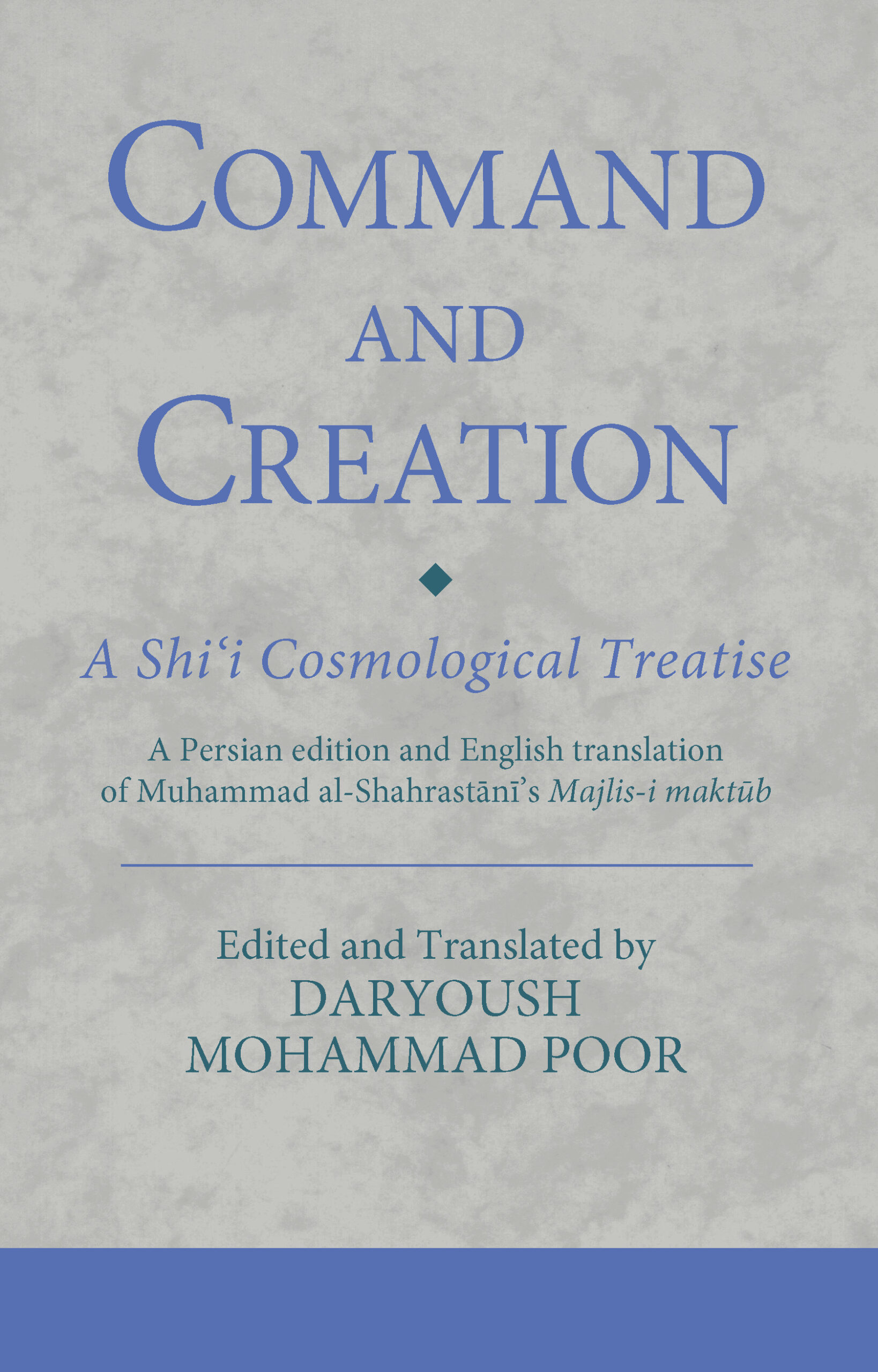The eminent Muslim scholar al-Shahrastānī, who may have been a crypto-Ismaili, wrote the Majlis-i maktūb in the final years of his life, some time between 538/1143 and his death in 548/1153. No longer in government service and having withdrawn to the village of Shahrastāna, in Khurāsān, it is possible that he felt he could express his personal beliefs more openly than hitherto. At any event, the Ismaili character of the work has been noted in the past and this element of the Majlis receives further confirmation in this new edition and translation. Its theme is the Divine Command, Be! (kunIn the Qur’an, the divine imperative (amr), meaning ‘Be,’ (as in Q. 2:117: ‘when He decrees a thing, He but says to it: ‘be’ and it is’). Ismaili Neoplatonist authors…) and Creation, a topic central to the Ismaili understanding of cosmology. This theme is presented in the form of a sermon (waʿz) comparable to the sermons of the great Fatimid dāʿīLit. ‘summoner,’ a term for missionary amongst various Muslim communities, especially used among the Ismailis before and during the Fatimid period as well as in the Alamut period of Ismaili…, al-Muʾayyad fi’l-Dīn al-Shīrāzī (d. 470/1078) collected in his al-Majālis al-Muʾayyadiyya, or those of the medieval Persian poets Rūmī and Saʿdī.
The style of the Majlis is varied, immediate and engaging, and it includes logical argumentation as well as two dramatic duologues, between God and IblīsThe name given in the Qur’an to the Devil, mostly when he is said to have refused to bow down before Adam (Q. 2:34, etc,). Also called al-shayṭān (‘the demon’)… and then Moses and Khidr. In the course of the sermon al-Shahrastānī challenges the arguments of various theological schools, including the Ashʿarīs, Muʿtazilīs and the Karrāmīs, as well as those of the philosophers. In the end it is the mystical truths of the enigmatic Khidr that he affirms. The concepts he outlines here went on to influence later Ismaili ideas, notably those concerning the declaration of the qiyāmat by the fourth lord of Alamūt, Ḥasan II ʿalā dhikrihi’l-salām, which took place in 559 /1164. As a result, this new edition and translation of the Majlis-i maktūb by Daryoush Mohammad Poor is an important addition to the study of early Nizārī Ismaili thought and provides a unique insight for anyone seeking to explore Islamic thought of the medieval era in general.
Preface
Introduction
Majlis-i maktūb munʿaqid dar Khwārzm (English translation)
Select Bibliography
Index
Index of Qurʾanic Citations
Index of Qurʾanic Citations (Arabic)
Majlis-i maktūb munʿaqid dar Khwārzm (Persian edition)
Dr Daryoush Mohammad Poor is a Senior Research Associate in the Department of Academic Research and Publications at the Institute of Ismaili Studies and a lecturer for its Department of Graduate Studies. His first monograph, Authority without Territory: The Aga Khan Development NetworkThe Aga Khan Development Network (AKDN) is a contemporary endeavour of the Ismaili Imamat to realise the ethics and social conscience of Islam through institutional action. More and the Ismaili Imamate (2014) is a fresh theoretical engagement with contemporary institutions of the Ismaili imamate. As part of the Diamond Jubilee publications of the IIS, he has co-edited and translated the autobiography of Aga KhanA title granted by the Shah of Persia to the then Ismaili Imam in 1818 and inherited by each of his successors to the Imamate. I, with Daniel Beben, under the title of The First Aga Khan: Memoirs of the 46th Ismaili Imam (2018).

